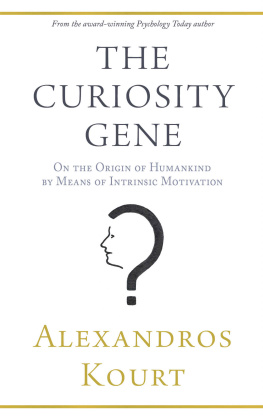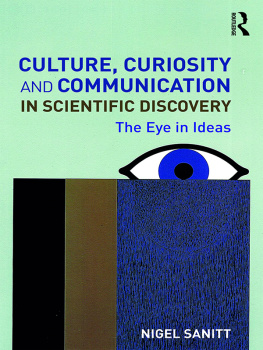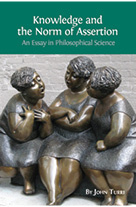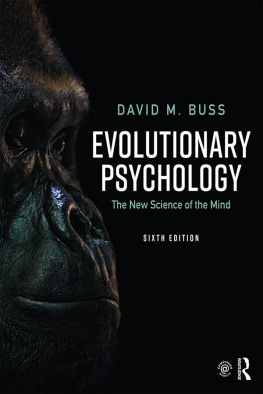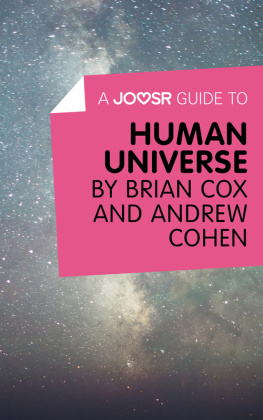Copyright 2017 Alexandros S. Kourt
All rights reserved.
Artwork, cover & interior design: A.S.K.
Preface
Throughout the ages, people have asked perhaps the ultimate question: How did we get here? Among its connotations, there is the question of how the universe came to exist. There is also the question of how life began from the ubiquitous primordial soup. Then, consuming religion and science alike, there is the more personal question of how our species came to be. Even presupposing the existence of a universe with a diverse array of life, how on earthexcusing the pundid such a unique and intelligent species as humankind come into existence?
With the advent of the theory of evolution, our species took a tremendous leap forward in answering this question, but it remains only a partial answer since we are so unique. We alone evolved such incredible intelligence
Why only us?
We are the only species that gets to ask this question, of course. No surprise there, since only humans have sentences. We are the only creature smart enough to research and debate possible answers but what if our very desire to ask such questions is the reason for our smarts?
Is curiosity itself somehow responsible for our unique evolution into the smartest creature on the planet? And if so, how?
In part one, Cracking The Code of Human Evolution , we will see how curiosity forms a missing link in the story of human evolution. We will see how we possess curiosity uniquely throughout the animal kingdom, at least in degree if not in form. Without it, we would still be ape-like and not have evolved into this present, intelligent form. We would be chimp, not humana bold claim, to be sure. If indeed this is the case, it begs two further questions.
First, from whence came this thing called curiosity?
In part two, The Origin of Curiosity , we will examine a momentous event of 2.3 million years ago as a likely smoking gun that set off a chain of circumstances in which our innate and insatiable form of curiosity appeared, stamped onto our DNA to make us truly unique in the animal kingdom. As with physical characteristics, desires and drives such as curiosity must likewise be products of evolution, which we will investigate for the first time.
Second, if curiosity is fundamental to our evolution and defines our species, does it not hold the key to happiness and personal fulfillment?
Towards the end of the book, we will illustrate the surprising road to happiness and fulfillment that highly curious individuals would be well-advised to pursue, or else risk feeling an enduring discontent tied to the events of 2.3 million years ago. For some, the curiosity gene can render contentment an elusive goal.
I believe that an understanding of our unique evolution has the ability to provide tremendous peace of mind and objectivity in an oft-confusing modern world. Emotions and feelings can be better understood given an awareness of our multimillion-year journey conditioned towards tribal life. With rates of depression and anxiety at record levels350 million people suffering from depression globally according to the World Health Organization and one in four US teens suffering from generalized anxiety disorder according to the National Institute of Mental Healthsomething is possibly amiss.
For only a thin sliver of time, on geological timescales, has our emotional system been exposed to social media, processed foods, drugs, television, commercials, texting, internet surfing, politics, and career choices. Each modern element, while potentially adding comfort or entertainment to daily life, also preys on our attention and desire, resulting in potential conflicts. Seeing each feeling or motivation in its grander historical context can become a valuable tool to promote emotional intelligence of which the first step, as Daniel Goleman frequently wrote, is self-awareness and understanding. To that end, The Curiosity Gene touches upon emotions with an evolutionary backdrop to provide a deeper context on how this intrinsic drive can impact our personal happiness.
My study of curiosity began quite unexpectedly while at the University of Manchester, England, in the throes of a computer science thesis. The specific topic under review involved logic circuits, the neurons of computers. What struck me about these computer building blocks was their similarity in function to certain aspects of the brain. This comparison, in turn, led me to this simple idea: If the brain is a computer, why not apply computer theory to understanding it and, in particular, its evolution? While this may sound reasonable, perhaps even obvious, it has not been a common practice in the field of anthropology. This book, among other things, aims to help change that.
Applying computer theory need not be complex or involve overwhelming jargon. Quite the contrary. During my twenty years building large-scale software systems in London and New York for some of the biggest companies in the world, a common theme emergednamely that the simplest solution is often the best. While this is a well-known tenet called Occam's razor , named in honor of the fourteenth century English philosopher and friar William of Ockham ( Occamus in Latin) and oft-quoted by Einstein, it is especially relevant in the software industry. Software developers have long-since come to understand that simpler solutions tend to be the best. They are relatively bug-free and efficient, so long as they are true to purpose, of course. A modern, technological mindset can and indeed should simplify our understanding of the brain while providing greater insight. With that, as we will soon see, light can be shed on brain evolution.
The brain is indeed an evolved organ. Stating the obvious, by better understanding something, we can better understand its evolution. If the brain is a computer, what hardware and software does it comprise? Examples of hardware in the technology industry include laptops, tablets, and smartphones. Their most fundamental component is the computer chip, also known as a CPU, silicon chip, or integrated circuit. Examples of software include Microsoft Word, smartphone apps, web browsers, and a special layer of core software called the OS (or operating system). The brain is not made of chips and wires but has similar elements. It has neurons, loosely analogous to hardware, and arrangements of electrical signals plus chemical signatures amid those neurons, loosely analogous to software.
Hardware and software interact continually, of course, in modern computer systems. This results in intricacies that become more apparent in large-scale systems, where multiple independent tasks are running simultaneously, each interacting with the others. Writing and enhancing large-scale computer systems is a rewarding but occasionally painful and frustrating endeavor.
Allowing computer scientists to make sense of it all is the concept of an algorithm . Google, founded in 1998 by Larry Page and Sergey Brin, has become one of the largest companies in the world with a market capitalization of over $600 billion, more than the GDP of most countriesall but the top twenty in fact! A tremendous reason for its success is not simply computer technology in general but specifically its use of algorithms. Similar to a strategy, an algorithm is broadly defined as a step-by-step procedure for solving a problem. A common example is a map app, which includes an algorithm to determine the best route between two addresses given data on available roads and speed limits. Such an algorithm can be challenging to create when the average speeds along the various stretches of road are impacted by congestion, stop signs, and traffic lights affecting optimal routes in intricate ways. Map algorithms offered by competing firms historically tended to be sub-optimal, allowing Google's continued rise to success. Other examples of algorithms or strategies, albeit far more humdrum, include how to make a cup of tea, pack a suitcase, or get dressed in the morning. Algorithms of various sorts are all around us. They are fundamental to the effectiveness of computer systems and everyday processes alike.

